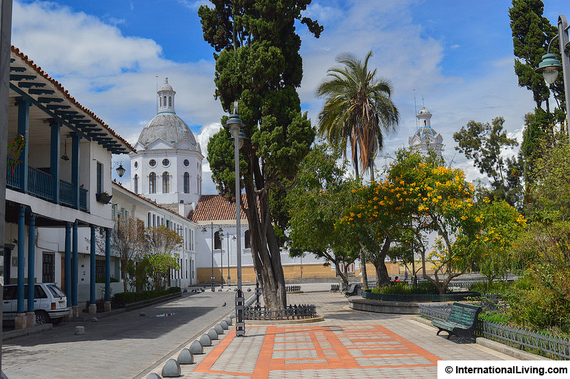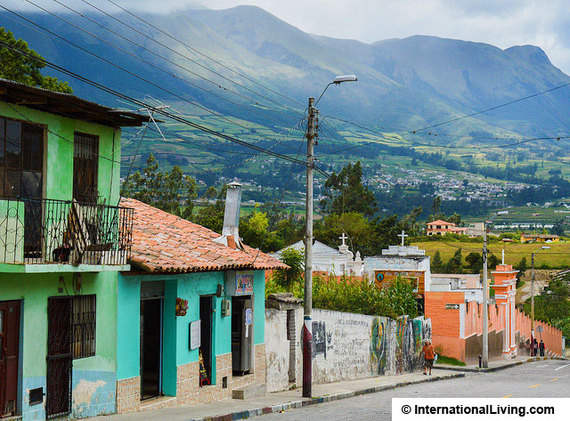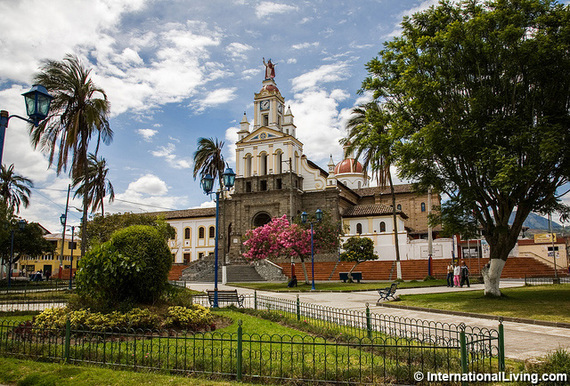When the buzzer rang at our condo in Cotacachi, Ecuador, we assumed it was the gas delivery man or our cleaning lady. But the voice on the other end of the intercom was frantic.
"Do you speak English?" a man asked in Spanish. "An extranjero needs help!"
At our front gate we met an agitated local man who knew foreigners lived in our complex and had pushed the call button of the first North American-looking name he saw. (Haskins and Prescher are not common family names in Ecuador.) He led us a block up the street to an ambulance parked at the curb.
In the ambulance, two medics were questioning a confused and frantic older man who was shouting in English and weakly struggling to get out of the ambulance. The medics told us that someone had called them when the man had collapsed on the sidewalk, and when they arrived he was conscious but very uncooperative. They had a little English but could get nothing coherent out of the man. So we tried.
"Where do you live?" we asked. "Is everything all right?"
"I want to go home," the man said. "I live right over there." He waved vaguely back down the road. His voice was slurred, and he was still trying to get out of the ambulance and walk but wasn't steady enough on his feet.
"What happened?" we asked. "Why did you fall down?"
We couldn't understand his mumbled answer, but one of the medics took another close look at the man and said in Spanish, "Diabetes? Do you have diabetes?"
"Do you have diabetes?" we asked the man in English.
"Yes, yes," the man said. "I want to go home."
The medics told the man who had brought us to the scene to go to the tienda across the street and get some orange juice. The man drank it and was soon coherent enough to tell us where he lived ... just two blocks away as it turned out. The medics got him home safely. He lives by himself in a small apartment near ours, but we had never seen him before.
Talking about it later, we wondered to ourselves ... What would prompt someone with a serious medical condition to move, by themselves, to a foreign country without being able to speak the language? And why wouldn't they at least have a necklace, bracelet, or wallet card on them at all times to alert medical personnel about their condition in an emergency?
Although medical care is generally excellent in most major cities around the world, it won't be as top-quality in smaller towns and villages. (Same goes for the U.S., of course.) And even in major cities, for a foreigner with no skills in the local language, you should never count on having instant access to highly trained, English-speaking medical personnel in the event of an emergency.
For this reason, it's a good idea to carry some information about your medical history with you at all times ... a bracelet or dog tags that mention any allergies or notable medical conditions, for instance. Some companies now offer tiny USB memory sticks that can hold medical information -- a good idea for anyone with a complicated medical history.
A big part of the expat experience is the thrill and challenge of self-reliance in unfamiliar situations. In many expat communities, that self-reliance extends to the medical needs of the community itself. And it's exactly why many expat communities have taken this responsibility seriously and formed their own medical alert networks.
A medical alert group is a community of expats who make each other aware of their medical histories, including blood type, any allergies, and any special medical conditions. They'll also share phone numbers and email addresses amongst themselves so they can quickly reach each other, and they'll share contact information for family or friends back home in case anyone needs to be notified.
Arrangements can be made for a regular phone call or email check-in with someone if a particular medical condition warrants it.
These expat medical alert networks can save lives. They can also be a lot of work to organize and maintain, which is why expat retirees with medical administrative experience can become such valued members of the community. Having a retired nurse, doctor, or other medical professional in town can be a real boon if they're willing to help organize things and provide some basic guidance -- any advice on what kind of information is most important to have on file in the event of an emergency.
If you're considering moving abroad and having an active expat medical alert network is important to you, check the bulletin boards and Facebook pages of the communities you're interested in to see if an active network is available or needs to be formed.
Related Articles:
Healthcare So Good You Won't Believe What It Costs
Picking the Perfect Retirement Destination
Where to Find the Best Healthcare in the World
Earlier on Huff/Post50:




